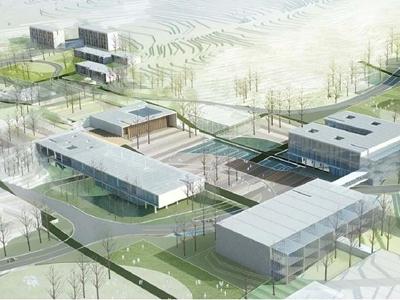
Minister of Science & Technology Chu Ngoc Anh has been appointed as the council’s chair, while Deputy Minister of Science & Technology Pham Dai Duong is deputy chair.
The members of the council include Nguyen The Phuong, Deputy Minister of Science & Technology, Huynh Quang Hai, Deputy Minister of Finance, Nguyen Dinh Chien, deputy CEO of Viettel, Do Tuan Dat, president and CEO of Vabiotech, a vaccine and bioproduct manufacturer.
The other members are professors and PhDs from the Hanoi National University, Material Science Institute, Agricultural Genetics Institute and Biotechnology.
V-KIST was established in accordance with the government’s decree No 50 dated May 18, 2015 with budget of $70 million, of which $35 million is non-refundable ODA capital from South Korea.
The establishment of the institute was first mentioned in 2013. At that time, Mai Ha, Director of the International Cooperation Department of the Ministry of Science and Technology, said V-KIST would focus on three scientific research fields, including the material technology, biotechnology to serve agriculture and healthcare, and the information technology to serve the digital technology.
The project would develop in two phases. The first phase, from 2013 to 2017, would be the time for the construction and general design.
|
The government has approved the list of members of the Council of V-KIST, a research institute set up in accordance with the South Korean Institute of Science and Technology |
The pay for one officer at V-KIST is $1,000 (VND21 million) on average, while the president would receive $6,000 (VND120 million). The total pay for 120 officers of the institute in the first year would be VND37.2 billion.
The scientists at V-KIST also enjoy the best working conditions and other preferences, including vehicles for travel and housing. They have tax exemptions when buying vehicles, 30 percent of payment to send children to international schools. Their spouses are given allowances and helped to find suitable jobs.
The government and scientists have high hopes for V-KIST, believing that the South Korea-style institute would help Vietnam’s science and technology sector take off.
Meanwhile, Prof Nguyen Van Tuan, a lecturer of New South Wales, is cautious when about the research institute. He said if the institute does not have internal resources, such as cooperation or sponsors, Vietnam may have to depend on foreign countries.
According to Tuan, in countries with developed science, the rate of international cooperation is between 30 and 40 percent. According to SCImago, a country with an international cooperation rate of 80 percent would be considered ‘dependent’.
Vietnam publishes 1,000 scientific articles in international journals every year, of which 75-80 percent are done with cooperation with foreign scientists. The proportion is high, 85 percent, in biotechnology.
| related news |
Chi Mai